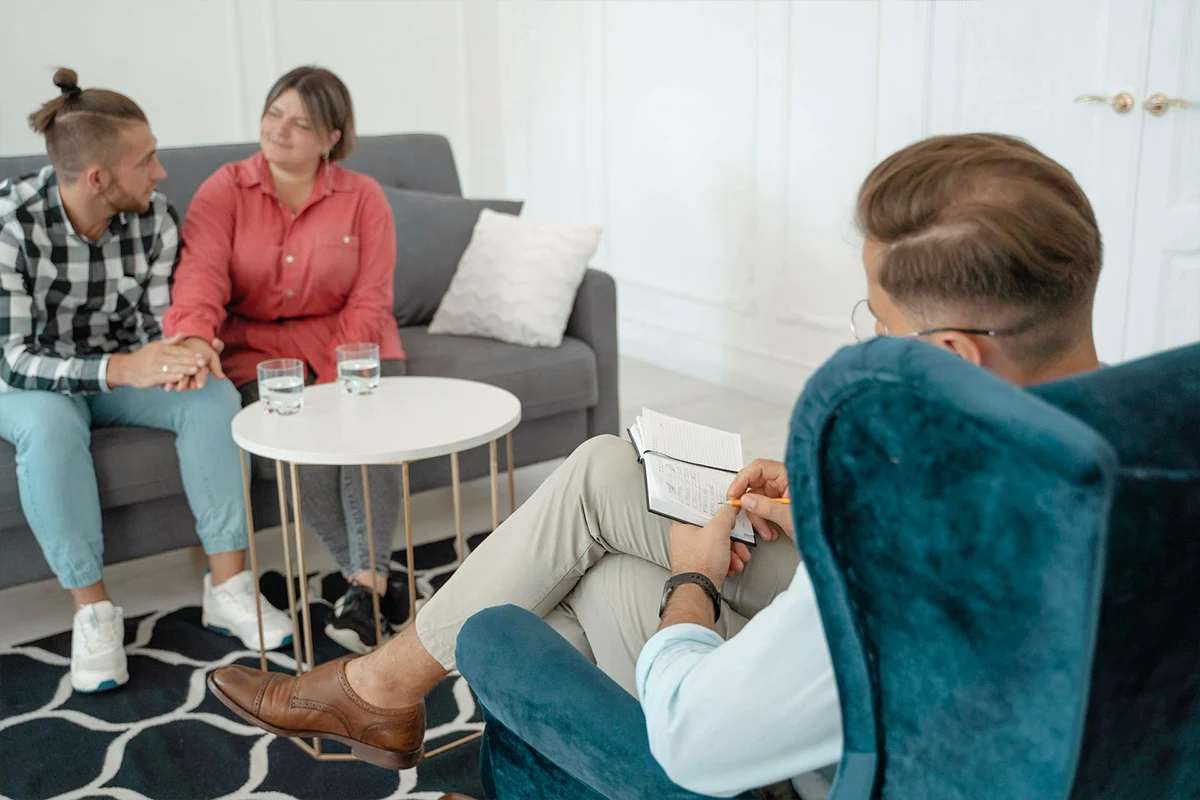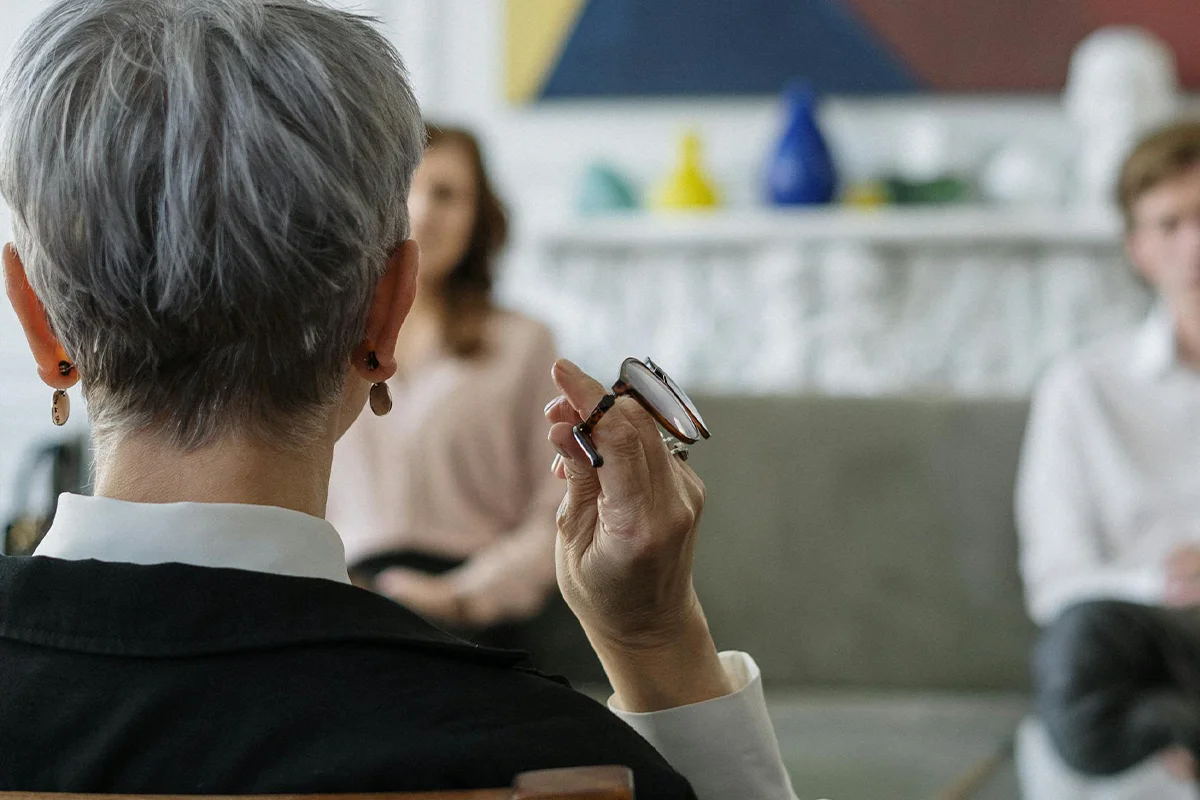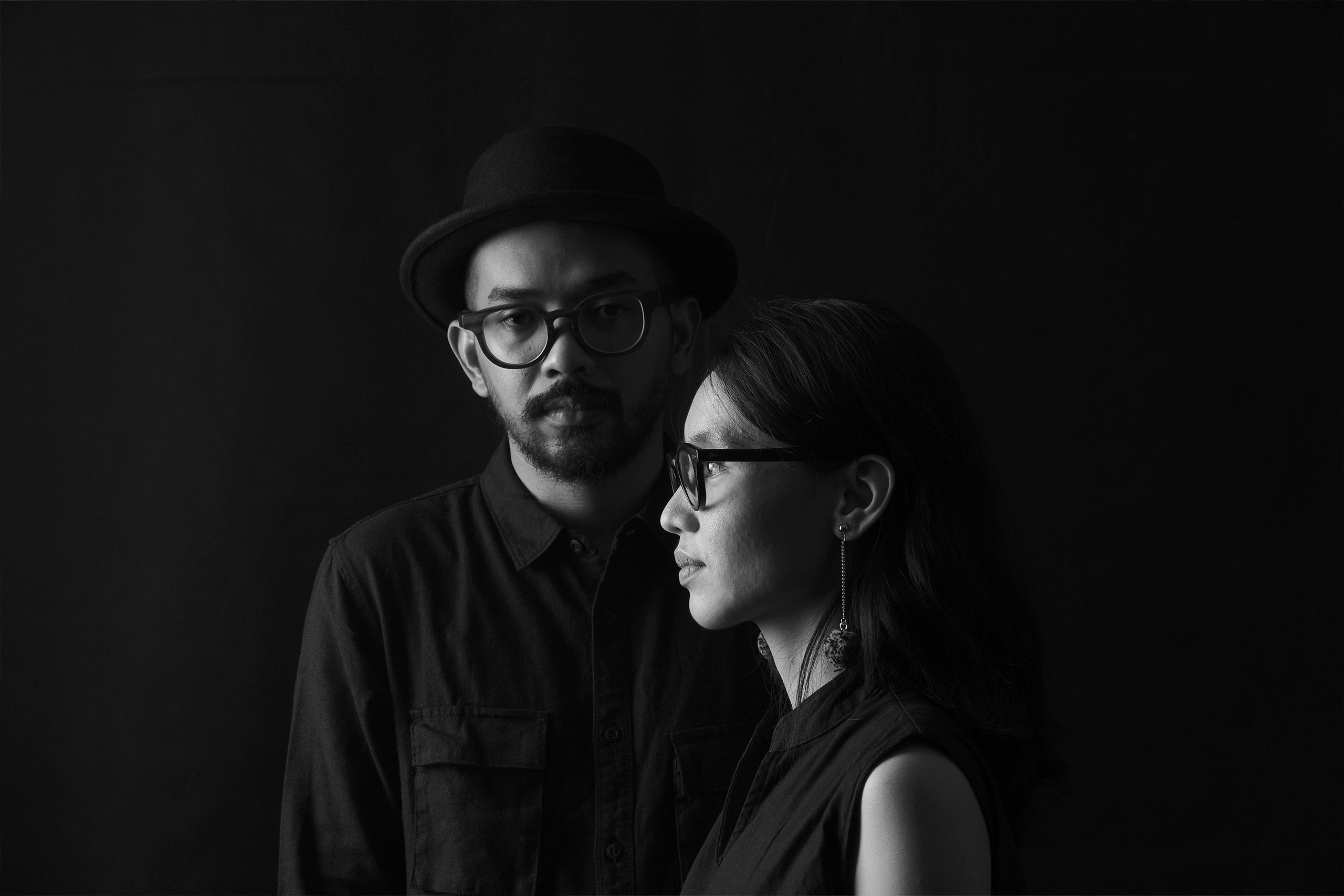Whether you’re in a fairly new relationship and just starting to notice some problematic patterns you’d like to nip in the bud, or you and your partner have been painfully struggling for some time, figuring out how to find a couples therapist can feel intimidating.
Knowing where to start the endeavor can be confusing and not knowing how to judge whether a therapist will be good is discouraging.
This article will offer some guidance on what to look for, what to avoid, and where to get started — plus clear some roadblocks & misconceptions.

What to look for in a couples therapist

What to avoid in a couples therapist

How to Find a Couples Therapist: Where to Start?
Step 1: Do the right research
So, wondering how to begin looking for your future therapist?
Whether you’re in San Francisco or not, try taking a look at Empathi’s list of couples therapists:
Figs O'Sullivan
Figs is the creator of the Empathi method and the certification process for Empathi coaches. He's also Chief Empathi Officer, husband, dad, wounded-healer and was featured on NPR's All Things Considered as a champion for healthy relationships.Figs' life's mission is to help couples feel more connected.

Iliana Paola Domínguez
Iliana works heart-to-heart with individuals and couples, in English or in Spanish, to help them deeply connect to themselves and others.Using EFT, Iliana leads individuals in navigating their inner world and helps partners understand and see each other so that they can rebuild the trust, safety, and love they both long for.

Sherwood Wang
Sherwood works with compassionate awareness and non-judgmental curiosity to support the exploration of each couple’s unique challenges, with a deep understanding of how these negative cycles undermine what makes relationship beautiful.Using attachment theory and EFT, he transforms harder moments into opportunities for couples to love one another more fully, with greater understanding, connection, and safety.

Karen Gordon
Karen is skilled at helping couples understand the painful cycle of conflict they’re stuck in and guiding them back to safety, connection, and love. She is known by her clients for offering direct and honest feedback with love, warmth, and humor. Karen specializes in working with couples and individuals dealing with relationship issues.She is trained in Gottman Couples Therapy and has intensive training in EFT for Couples.

Ford Peck
A gentle man who walks the talk, a loyal long-time partner in a committed relationship. Ford is a certified teacher and senior trainer in iRest, helping train other therapists in this somatic healing practice. He is also certified in yoga therapy and SHEN therapy for emotional healing.Ford’s passion is helping clients find fulfilling connection with themselves and in their relationships.

Teale Taxis
Teale is a wife, mother, artist and passionate advocate for love relationships. She has a special focus on cultural sensitivity, parenting, and how to prevent and repair affairs and other relationship injuries.Teale loves working with people to facilitate their greater sense of self-acceptance and capacity to experience joy and connection.

Unlike for services like Betterhelp, quality control is already baked into the Empathi system.
These therapists were hand-picked and trained by leading experts in the field to use The Empathi Method — an approach fully rooted in validated relationship science like EFT and Attachment Therapy.
We each have different perspectives, stories, and therapeutic backgrounds that can and should inform your choice!
But here, you can start with a foundation of trust in the process.
Here are some other ways you can find a couples therapist:
- Do an online search using keywords like “Emotionally Focused Therapists”, “Gottman Therapists”, or “Couples Therapists”.
- Check out couples therapy training organizations — most of them have directories you can explore featuring the folks who were trained by them.
- Explore other directories like Psychology Today.
- Ask friends or others in your various networks.
- Consider asking other medical providers for referrals.
- If you reach out to someone who has a full practice, inquire whether they can recommend someone.
Step 2: Set up some consultations
You can get a decent feel for a potential therapist in a short while by having a conversation with them.
Schedule consultations with several different folks as part of your due diligence and take notice of how you feel.
Do they exude a reassuring sense of professionalism? Seem confident and capable?
Useful questions to ask a couples therapist during your consult:
- How long can I expect treatment to last
- What’s your general training and background?
- What’s your training background for couple’s therapy
- What percentage of your practice is with couples vs. individuals?
- How do you feel about the issues that we’re struggling with? Do you have experience with them?

How to Find a Couples Therapist: Frequently Asked Questions

How to Find a Couples Therapist: Start now.
As daunting as it seemed, learning how to find a couples therapist that is right for you was an important first step towards healing and strengthening your relationship.
But now it’s time to book some calls!
If you remember to prioritize alliance, specialization and skillset, pay attention to warning signs, and think practically about the factors that matter to you most, you’re now ready to take a really meaningful step towards a stronger relationship.


